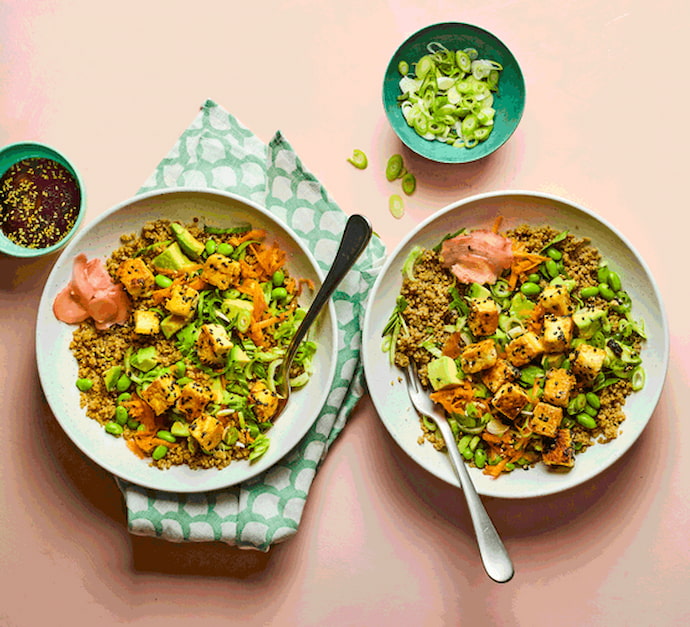Are you feeling stressed and overwhelmed by all the things that are going on in your life? Feel like you can’t catch a breather? We can definitely relate to that. With everything that’s happening in the world these days, it’s virtually impossible not to feel like you’re constantly on the verge of a panic attack. That’s not a pleasant state of mind to be in. And sure enough, people develop different coping mechanisms and strategies to make dealing with their hectic lives at least somewhat easier. If you’re still looking for ways to cope, then trying essential oils might be a good place to start.
You don’t need any special equipment or training to get you started but it’s good to have a general idea of how to use essential oils effectively and efficiently. Essential oils are incredibly versatile and can be used in various ways. They also have numerous medicinal and therapeutic characteristics which is why we’re offering a quick breakdown of all the basics and a guide on how to use them.
What Are Essential Oils?

Basically, essential oils are concentrated liquid extracts of various types of plants and they carry a multitude of benefits. The oils are obtained through a wide range of extraction methods from different leaves, herbs and barks and they contain a large number of active ingredients. In this way, oils capture the smell or essence of a plant, hence the name.
Some practitioners use them in their everyday medical and holistic practices but you can use them at home as well. Studies show that essential oils can improve your overall mood, cognition and physiology. Think about ancient times for a second. What did they use in their daily medical practices? You’re absolutely right, they were all-natural. After all, plants have the God-given power to help us heal. So why not try it out?
What Are the Most Popular Essential Oils?
Now that you’re familiar with the concept of essential oils, let’s have a look at the most popular essential oils that are must-haves for any enthusiast.
Frankincense Oil

Known as the “King of all Oils”, it’s probably the most versatile and widely-used essential oil. Its chemical components can result in a soothing aroma that can deter negative feelings and anxious thoughts, leaving you in an incredibly relaxed state. It’s a great way to alleviate tension and ease the mind in a short amount of time and without putting in too much effort. By using frankincense oil you’ll achieve feelings of peace, satisfaction and even improved mental wellness overall.
It also has quite a few anti-inflammatory and antiseptic properties which means it’s perfect for those who suffer from chronic aches and pains. Frankincense oil helps reduce joint inflammation caused by arthritis and as a result, greatly contribute to ease of movement and minimise pain.
Another benefit of frankincense essential oils is their remarkable ability to rejuvenate and revitalise the skin. Because of its anti-inflammatory properties, it’s the go-to defence mechanism against wrinkles and blemishes. It refines the appearance and elasticity of your skin by promoting rapid cell regeneration and beautifully evens out your tone.
What many of you may not know is that frankincense prevents the spread of cancerous cells as well. By doing this, it limits cancer growth and reduces the risk of potential medical emergencies in the future.
Taking all the pros into consideration, there’s no reason why you shouldn’t get your hands on frankincense oil Australia experts recommend. Because of its popularity, it’s easy to purchase frankincense oil Australia wide and reap the benefits of this natural wonder in no time.
Peppermint Oil

The smell of peppermint is a little more intense when compared to other essential oils but it’s very pleasant nonetheless. Peppermint is very practical and useful when it comes to soothing nausea, stomach aches as well as other digestive issues. In addition, it can be used to tackle headaches and muscle sores and strains. It’s suitable for alleviating pain and muscle cramps caused by spasms and injuries.
Peppermint can ease the symptoms of a cold too, including a cough, sore throat and nasal congestion. Say goodbye to the common cold with a few drops of menthol that will have you feeling better in a heartbeat.
How to Use Essential Oils?
There are three main ways you can use essential oils and we’ll go through each one to help you decide on the most suitable option.
Inhalation

We’ve all heard of aromatherapy right? Well, this is it. By taking a whiff of the smell of essential oils, you allow them to enter your lungs and inherently, your bloodstream. The helpful compounds stimulate your nervous system, resulting in a calmed and relaxed state. This is especially important if you’re looking to take up meditation to help calm and still your mind.
You can use oils as aromatherapy by inhaling directly through the bottle, adding a few drops into a spray bottle or using a diffuser to purify the air. All options are equally effective and beneficial so the choice mainly comes down to personal preference.
Topical Use

The topical use of essential oils entails applying them directly onto your skin and letting them slowly penetrate your skin barrier and enter your bloodstream. This helps reduce skin sensitivities and itching as well as prevent rashes from developing. You don’t have to lather on large amounts of oil, a little goes a long way after all. When it comes to babies and those with sensitive skin, make sure to dilute the oils to ward off the possibility of an allergic reaction.
Ingestion

Ingesting essential oils is more common when dealing with more serious health issues since it provides a quick remedy. They can be taken under the tongue, diluted in water or other beverages or placed in an empty pill casing and swallowed.
It’s important to note that not all essential oils can be ingested since some may have potentially harmful effects. Consult with your practitioner before taking any oral supplements or read the label on the bottle for any directions on internal use.



